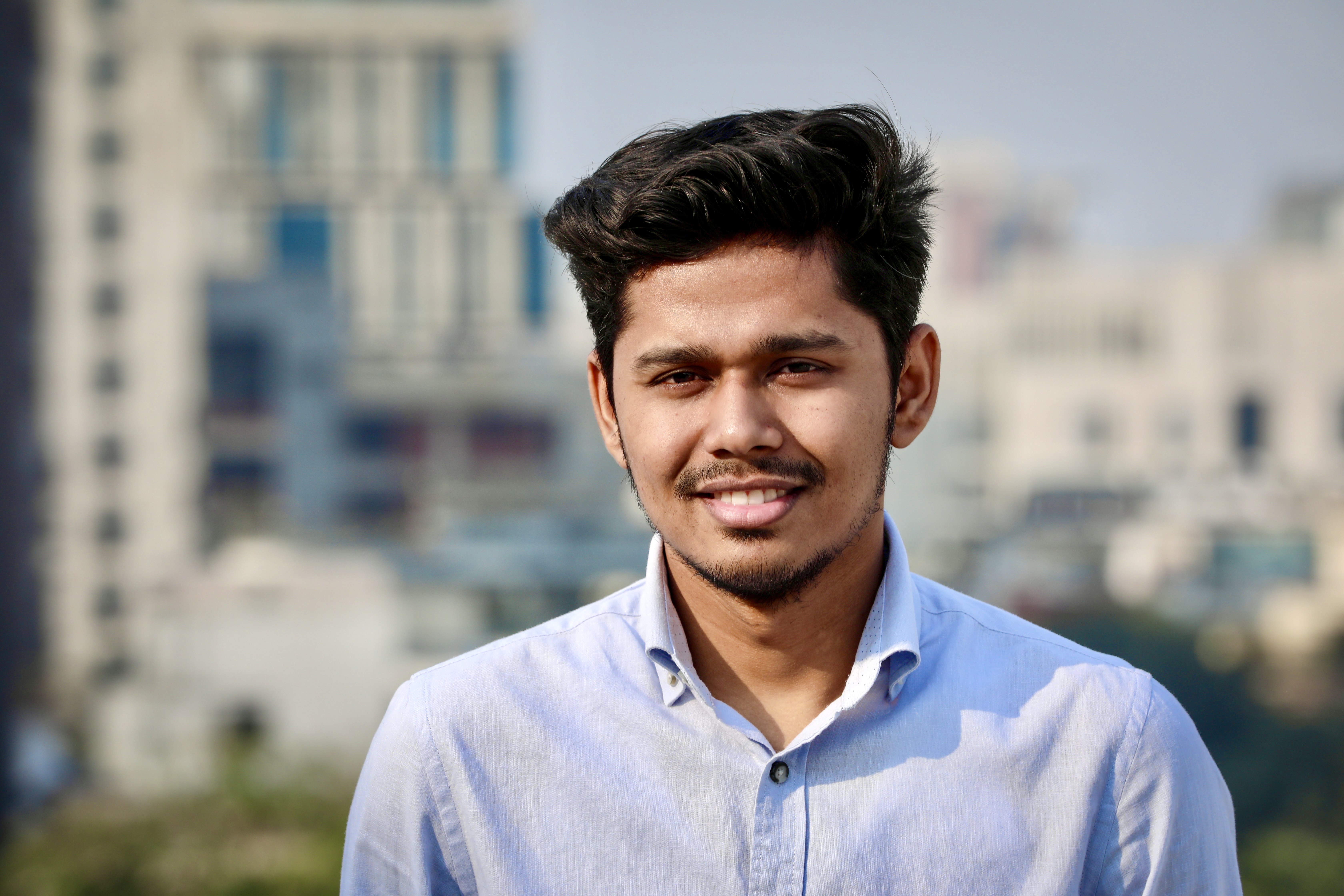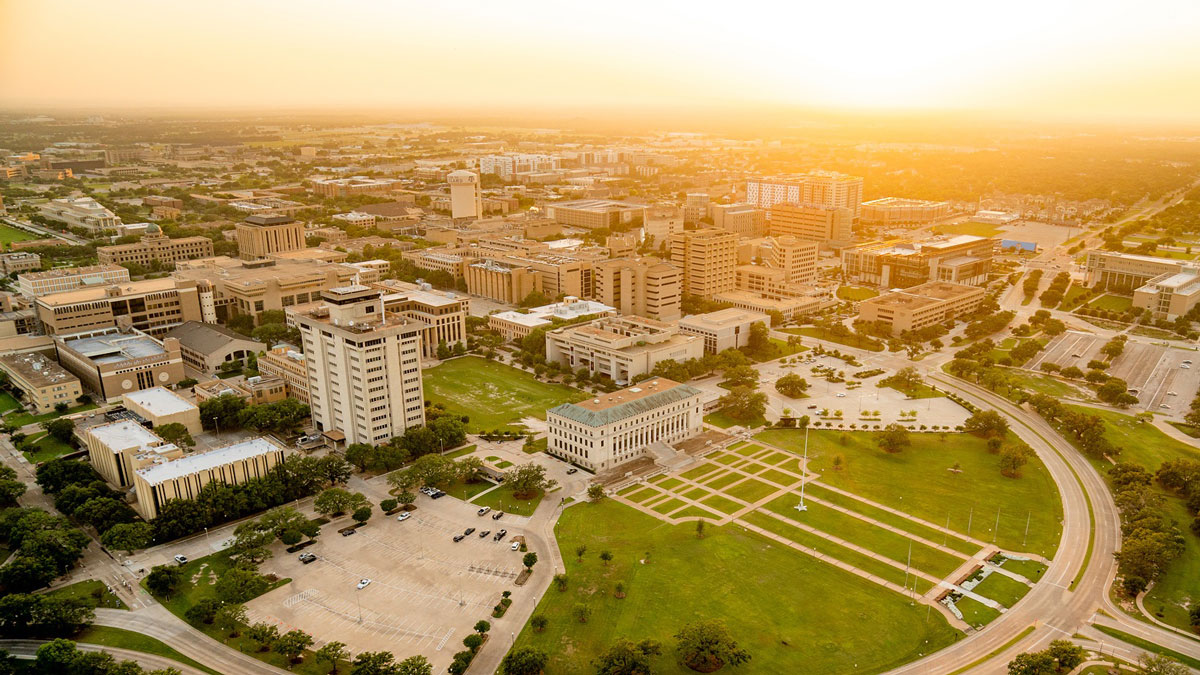A PhD candidate’s pursuit of vaccine research and passion for Chemistry

Momota Akter is currently pursuing a funded PhD in Organic Chemistry in the Department of Chemistry at Michigan State University (MSU). She is conducting her research under the supervision of Professor Dr Xuefei Huang and also serving as a graduate teaching and research assistant in the same department.
In March 2024, Momota was awarded Emergency Fellowship Funding in support of a dental medical emergency. Earlier, in the 2017–2018 fiscal year, she received the National Science and Technology (NST) Fellowship from the Ministry of Science and Technology, Bangladesh, in recognition of my MSc research in Organic Chemistry.
Momota's academic journey began in Mymensingh, where she completed her Secondary School Certificate (SSC) at Latu Mondol High School in 2008, followed by her Higher Secondary Certificate (HSC) from Shaheed Syed Nazrul Islam College in 2010. She then completed her Bachelor of Science (BSc) degree in Chemistry from Dhaka University in 2016, and went on to complete her Master of Science (MSc) in Organic Chemistry from the same university in 2018. At present, Momota also serves as the General Secretary of the Bangladesh Chemical and Biochemical Association in North America (BACABANA), Michigan Chapter, a non-profit organisation dedicated to supporting students and professionals in chemical and biochemical sciences.
Campus sat down with Momota to talk about her research and life as a PhD candidate.
Campus (C): Chemistry is a difficult subject, one that's feared by many, especially in school. What made you pursue this subject for your higher studies?
Momota Akter (M): I come from a rural village in Mymensingh, Bangladesh, where completing even primary education was considered nearly impossible, especially for girls. Like many others, I faced formidable challenges in my early educational journey. Chemistry, in particular, often seemed intimidating—its equations and formulas appeared complex and overwhelming. Yet, that very challenge drew me toward the subject and sparked my determination to explore it deeply.
Over time, I realised that chemistry is not confined to textbooks; it is intricately connected to everyday life. I have always been curious about how medicines are developed, how materials are created, and how small scientific changes can have a profound impact on the world around us. From the quality of food to the effectiveness of medicines, from environmental shifts to technological advancements—chemistry influences every aspect of modern life. This realisation inspired me to pursue chemistry in higher studies, believing that if I could master it, I would not only build my career but also contribute meaningfully to society and my country.
Even though my school lacked sufficient resources, I nourished my curiosity by watching science programmes on television, which deepened my fascination with the subject. That curiosity, coupled with a desire to understand the science behind everyday life, drove me toward a career in research chemistry.
My parents, especially my father, played a pivotal role in nurturing this passion. He often shared stories of remarkable inventions and ground-breaking discoveries—many of which were rooted in science—and those stories fueled my resolve to follow this path.
C: What's a typical day like as a PhD candidate while also balancing graduate teaching and research assistant roles?
M: Being a PhD candidate means constantly balancing lab work, teaching, and personal life. The most interesting part is that no two days ever look the same. Although my weekly days off are Saturday and Sunday, since joining MSU, I often find myself working in the lab on Saturdays. The workload can be intense, but with good time management and a clear sense of purpose, it is possible to maintain a healthy balance and still enjoy the journey.
There are weeks when deadlines and experiments demand extra hours, but I try to offset that with breaks, family time, or hobbies to recharge. The reward is worth it because you're not only doing research—you're also building resilience, discipline, and the ability to manage multiple responsibilities at once. I prioritise tasks based on urgency and impact, and I follow a structured schedule that allows me to dedicate time to both research and teaching. Importantly, I view these roles as interconnected; the lessons I learn from each help me grow, both as a researcher and as a disciplined human being.
C: We understand that you are currently working on a vaccine at MSU. Could you tell us what this vaccine is and what it aims to do?
M: Enterobacteriaceae is a large family of Gram-negative bacteria that currently includes more than 210 species and 53 genera, such as Klebsiella, Enterobacter, Citrobacter, Salmonella, and Escherichia. These bacteria are associated with both intestinal and extraintestinal diseases, including urinary tract infections, bloodstream infections, pneumonia, and in some cases, diarrhoea. Alarmingly, several strains of Enterobacteriaceae have developed resistance to antibiotics. Of particular concern is Carbapenem-resistant Enterobacteriaceae (CRE), which is resistant to carbapenems—often considered the drug of last resort. The rapid rise of CRE highlights the urgent need for new preventive strategies.
Enterobacteriaceae produce a polysaccharide known as the Enterobacterial Common Antigen (ECA), composed of repeating trisaccharide units. This polysaccharide helps protect the bacterial outer membrane, serving as a virulence factor that enables infection. These unique features make ECA an attractive target for vaccine development. My research focuses on synthesising this antigen to develop a universal vaccine against Enterobacteriaceae, with a particular emphasis on combating antimicrobial resistance (AMR).
The discovery of penicillin (beta-lactam antibiotics) in 1928 marked a ground-breaking moment in medical science, as it was the first antibiotic found effective against both gram-positive and gram-negative bacteria. Since then, significant progress has been made in the development of antibiotics up to 2020. However, the majority of these advancements have primarily targeted Gram-positive bacteria. This leaves a considerable gap in the discovery of effective antibiotics against Gram-negative bacteria, posing a critical challenge for modern medicine.
Antimicrobial resistance is a growing global health crisis, increasing healthcare costs, patient morbidity, and mortality rates. In the United States (US) and worldwide, CRE represents one of the most dangerous examples of drug-resistant infections. My goal is to address this challenge by creating innovative, scalable, and cost-effective vaccine platforms. This work aligns with global health priorities, including the World Health Organisation's (WHO) call for equitable vaccine access, and offers solutions for both advanced healthcare systems and resource-limited settings.
Over the next three years, I plan to publish my findings in leading scientific journals and present them at major conferences, fostering collaborations to move this research from the laboratory into real-world applications. My long-term vision is to secure a senior scientific role at institutions such as the Centres for Disease Control and Prevention (CDC), National Institutes of Health (NIH), or international public health organisations, where I can lead multidisciplinary teams to develop effective AMR strategies.
For me, vaccine development is not only a scientific pursuit but also a moral responsibility. In an era of rapidly rising drug resistance, I see this work as a humanitarian mission to save millions of lives. Ultimately, I aspire to lead a federally funded research laboratory dedicated to equitable and scalable vaccine technologies—advancing innovation while shaping health policy and strengthening public awareness.
C: Do you think it is possible to work on similar vaccines in Bangladesh? What might be required if we were to engage in such vaccine research?
M: I firmly believe that similar vaccine projects could be undertaken in Bangladesh. For instance, the International Centre for Diarrhoeal Disease Research, Bangladesh (icddr,b) has played a significant and well-documented role in vaccine research and infectious disease control.
Moving into glycoconjugate or bacterial vaccine research is feasible, but several factors need to be considered: investment in synthetic chemistry and bioconjugation facilities—a major gap currently in Bangladesh—collaboration with international research groups for technological support, and support from the government and non-government organisations (NGOs) for funding and regulatory guidance.
C: When you were applying for your PhD at MSU, what were the things you highlighted in your application and other necessary essays or submissions?
M: I have rarely succeeded on my first attempt in life. In 2021, I applied to several universities in the US but received an offer letter from only one institution. Due to personal reasons, I did not join at that time. The following year (2022), I applied to eight universities and received multiple offers. Ultimately, I accepted the PhD offer from MSU, which came with full financial support, because the university's ranking and the research work of Professor Dr Xuefei Huang aligned closely with my interests.
After completing my master's in Organic Chemistry, I decided to pursue research in bio-related fields. Initially, I identified potential research areas and supervisors by thoroughly exploring the websites of American universities. I sent emails to professors outlining my research interests, experience, curriculum vitae (CV), and a brief proposal. Several professors expressed interest and conducted discussions via Zoom meetings, providing guidance for my applications.
I then carefully prepared the required application documents according to each university's guidelines, including the Statement of Purpose (SOP), CV, research proposal, transcripts, recommendation letters, and test scores, such as GRE, TOEFL, or Duolingo English test. I submitted my applications online, and in some cases, the application fees were waived. Following the submissions, I was invited for online interviews by several universities.
During these interviews, I discussed my research plans, interests, and future goals. After evaluation, I received offers from multiple universities. After careful consideration, I chose MSU. The offer was fully funded, covering all expenses, including a tuition waiver and a monthly stipend.
Based on this admission offer, I applied for a US student visa. Once the visa was approved, I arrived in the US and began my PhD programme as scheduled. While requirements vary across universities, most typically ask for language proficiency scores, a CV or resume, recommendation letters, writing samples, and a strong SOP or personal statement.
In an SOP, it is essential to highlight academic achievements such as undergraduate performance, GPA, honours, awards, or scholarships. More importantly, research experience must be emphasised—detailing specific projects, technical skills, and any conference or symposium participation. Applicants should also mention professors whose research aligns with their interests and explain their motivation to contribute to global scientific progress while also making a meaningful impact in Bangladesh.
C: Your recent research article was published in The Journal of Pathology - Research and Practice under Elsevier's ScienceDirect platform. Can you briefly explain the key findings of your study and their significance in the field of cancer research?
M: I have co-authored a significant research article published in The Journal of Pathology - Research and Practice, titled "Mechanistic role of stromal cancer-associated fibroblasts in tumorigenesis and brain metastasis: Highlighting drug resistance and targeted therapy". The study explores the critical role of cancer-associated fibroblasts (CAFs) in brain metastases. My co-authors—Md Rashedunnabi Akanda, Umme Lubaba, Md Khalesur Rahman, Anowarul Islam, Md Sadikul Islam, Md Nazim Uddin, and Byung-Yong Park—and I highlight how CAFs, the most abundant cellular component in the tumour microenvironment, drive metastasis, immune evasion, and drug resistance.
Analysing 99 studies, the research identifies key biomarkers such as PDGFR-β, α-SMA, and collagen I, linking CAFs to poor prognosis and cancer recurrence. The study further details how CAFs contribute to therapy resistance by modifying the extracellular matrix, secreting growth factors, suppressing immune responses, and inducing metabolic reprogramming.
Experts suggest that targeting CAFs through depletion strategies, paracrine signalling blockers, metabolic inhibitors, and immunotherapies could enhance treatment efficacy. However, the study emphasises that further research is needed to fully understand CAFs' role in metastatic brain tumours and develop more effective treatment strategies. I believe this research will serve as valuable evidence supporting the need for advanced therapeutic approaches in combating brain metastases.
C: You have experience as a lecturer in Chemistry. What teaching methodologies do you find most effective?
M: My academic journey has been significantly shaped by teaching and research roles at several prestigious institutions in Bangladesh. I served as a part-time teacher in the Department of Chemistry at Bangladesh University of Textiles (BUTEX) from October 2021 to December 2021, where my key responsibilities included taking classes and grading examination papers.
Prior to that, I worked as a part-time lecturer in Chemistry under the Faculty of Sciences at BGMEA University of Fashion and Technology (BUFT) from September 2019 to August 2020. During this time, my responsibilities included delivering lectures, proctoring examinations, grading examination papers, evaluating students' performance, and contributing to students' foundational understanding of chemistry and helping to cultivate their interest in scientific inquiry.
Every student learns differently, so I use a combination of lectures, interactive discussions, and hands-on activities to accommodate diverse learning styles. I also encourage students to seek one-on-one mentoring when they need additional support. By integrating active learning, technology, and hands-on classroom experiences, I strive to create an engaging and effective learning environment for my students. I continuously refine my teaching methods based on student feedback and new educational advancements to ensure the best possible learning experience.
C: How do you like to spend your leisure time outside of your academic and research work?
M: Outside of my academic and research commitments, I enjoy engaging in activities that refresh both my mind and spirit. I love travelling and exploring new places, as it allows me to experience different cultures and find fresh motivation for my work. I also enjoy watching Bangla dramas, which provide a relaxing escape.
Cooking is another passion of mine—it allows me to express creativity while nurturing myself and others. Above all, I deeply value sleep, recognising it as essential for maintaining a healthy balance and staying mentally and physically recharged.
These hobbies are more than simple pastimes; they are integral to my well-being. They help me relax, fuel my creativity, and sustain my passion for lifelong learning.
C: What advice would you give to aspiring PhD candidates from Bangladesh?
M: My advice is to remain persistent and dedicated while building a strong foundation in core subjects such as mathematics, physics, chemistry, and programming. Engage in research projects, internships, and scientific competitions early to gain real-world exposure and sharpen problem-solving skills.
For Chemistry students, go beyond memorisation—focus on understanding the principles behind reactions, developing hands-on laboratory expertise, and cultivating critical thinking. Stay curious, keep up with the latest scientific advancements, and strengthen your ability to communicate research clearly through writing and presentations. Most importantly, embrace both successes and setbacks as part of the journey, stay resilient, and never lose your passion for discovery.
Beyond academics and applications, pursuing a PhD is a lifelong journey, not a sprint. It demands patience and persistence, as meaningful results often come only after repeated failures. My advice to aspiring candidates is to avoid spreading themselves too thin. Instead of trying to do everything at once, focus on mastering one area deeply. This approach not only strengthens expertise but also builds resilience—qualities essential for success in research and beyond.



 For all latest news, follow The Daily Star's Google News channel.
For all latest news, follow The Daily Star's Google News channel. 


Comments